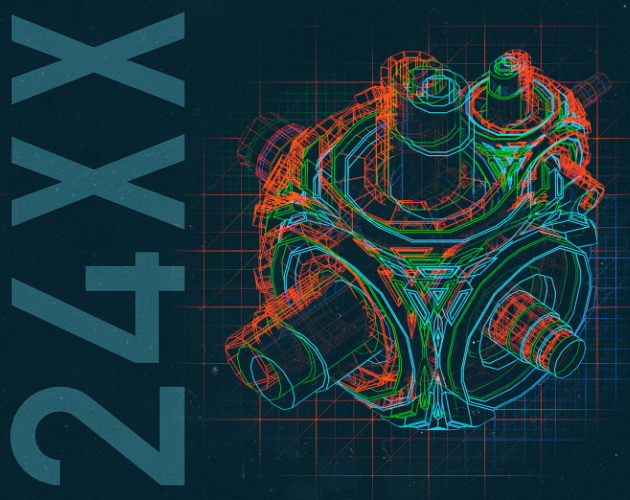RULES
PLAY: Players describe what their characters do. The game moderator (GM) advises when an action is impossible, requires extra steps, demands a cost, or presents an avoidable risk. Players only roll to avoid risks.
ROLLING: Roll a d6 skill die — higher with a rele‐ vant skill, or d4 if hindered by injury or circum‐ stances. If helped by circumstances, roll an extra d6; if helped by an ally, they roll their skill die and share the risk. Take the highest die.
1–2 Disaster. Suffer the full risk. GM decides if you succeed at all. If risking death, you die.
3–4 Setback. A lesser consequence or partial success. If risking death, you’re maimed.
5+ Success. The higher the roll, the better.
If success can’t get you what you want (you make the shot, but it’s bulletproof!), you’ll at least get useful info or set up an advantage.
LOAD: Carry as much as makes sense, but more than one bulky item may hinder you at times.
ADVANCEMENT: After a job, increase a skill (none➡d8➡d10➡d12) and gain 1 credit (₡).
DEFENSE: Say how one of your items breaks to turn a hit into a brief hindrance. Broken gear is useless until repaired.
HARM: Injuries take time and/or medical attention to heal. If killed, make a new character to be introduced ASAP. Favor inclusion over realism.
RUNNING THE GAME: Lead the group in setting lines not to cross in play. Fast-forward, pause, or rewind/redo scenes for pacing and safety, and invite players to do likewise. Present dilemmas and problems you don’t know how to solve. Move the spotlight to give everyone time to shine. Test periodically for bad luck (e.g., run out of ammo, or into guards) — roll d6 to check for (1–2) trouble now or (3–4) signs of trouble. Offer rulings to cover gaps in rules; double back during a break to revise unsatisfying rulings as a group.




